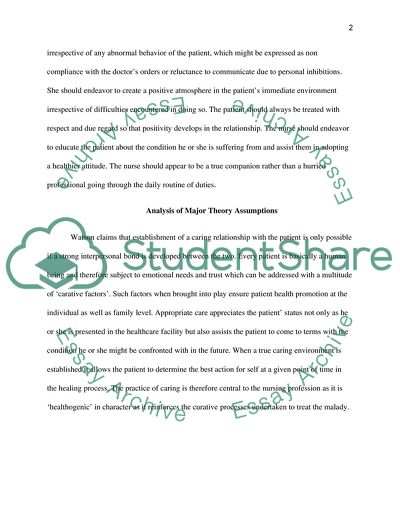Cite this document
(Critique of Jean Watson's Theory of Human Becoming Research Paper, n.d.)
Critique of Jean Watson's Theory of Human Becoming Research Paper. Retrieved from https://studentshare.org/nursing/1743727-critique-of-jean-watsons-theory-of-human-becoming
Critique of Jean Watson's Theory of Human Becoming Research Paper. Retrieved from https://studentshare.org/nursing/1743727-critique-of-jean-watsons-theory-of-human-becoming
(Critique of Jean Watson'S Theory of Human Becoming Research Paper)
Critique of Jean Watson'S Theory of Human Becoming Research Paper. https://studentshare.org/nursing/1743727-critique-of-jean-watsons-theory-of-human-becoming.
Critique of Jean Watson'S Theory of Human Becoming Research Paper. https://studentshare.org/nursing/1743727-critique-of-jean-watsons-theory-of-human-becoming.
“Critique of Jean Watson'S Theory of Human Becoming Research Paper”, n.d. https://studentshare.org/nursing/1743727-critique-of-jean-watsons-theory-of-human-becoming.


